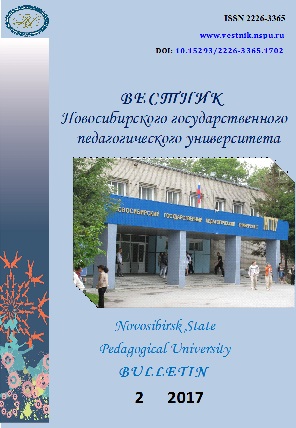Динамические процессы в прагматически маркированной лексике в русском языке в начале XXI века (на примере слова амбициозный)
Dynamic processes in the pragmatically marked vocabulary of the Russian language at the beginning of the XXI century (with the focus on the word ambitious)
Author(s): Lyudmila Nikolaevna KhramtsovaSubject(s): Applied Linguistics, Lexis, Semantics, Pragmatics
Published by: Новосибирский государственный педагогический университет
Keywords: Semantics; pragmatics; borrowing; modern Russian language; world language picture; splitting of connotation; enantiosemy;
Summary/Abstract: Introduction. The article is devoted to the problem of the current interest in modern lin-guistics – the relationship between language and society. The article presents the results of a study of the Russian language lexical system fragment, where dynamic processes caused by changes in the social life take place. The purpose of this article is to reveal changes in semantics and functioning of the word “ambitious” taking place in the modern Russian language at the beginning of the XXI century. The author notes that the opinion of some researchers about the complete loss of the negative component of the word's meaning is premature and not entirely justified. Materials and Methods. The article examines numerous usage examples of the words “ambition” and “ambitious” in different types of texts (journalistic, advertising, spoken) and al-so dictionary data, that allows the author to talk about more complex semantic-pragmatic transformations, largely due to social factors. The lexicographic method and contextual and discourse analysis are used. Results. The dependency of using the words “ambition” and “ambitious” with positive or negative connotation on the speaker's age, social status, and psychological personality type is revealed. The article traces the trend of consolidating the positive semantics of the word “ambitious” mostly in the minds of young people. The author emphasizes that mass media, especially advertising texts, play an important role in such consolidation in the minds of Russian native speakers. The author notes that the highly frequent usage of the word “ambitious” in mass media texts leads, on one hand, to a rapid assimilation of the new positive semantics, and on the other hand, the word itself is becoming a cliché. This conclusion is based on the analysis of a range of texts including, but not limited to, job offers and dating advertisements. Conclusions. In conclusion, the author identifies the analyzed phenomenon as enantiosemy, rather than a simple loss of a negative component. The author emphasizes that splitting the connotation of the word “ambitious” into the negative and positive is the consequence of the stratification of society into supporters and opponents of the adoption of the new Western values.
Journal: Вестник Новосибирского государственного педагогического университета
- Issue Year: 7/2017
- Issue No: 2
- Page Range: 143-160
- Page Count: 18
- Language: Russian

